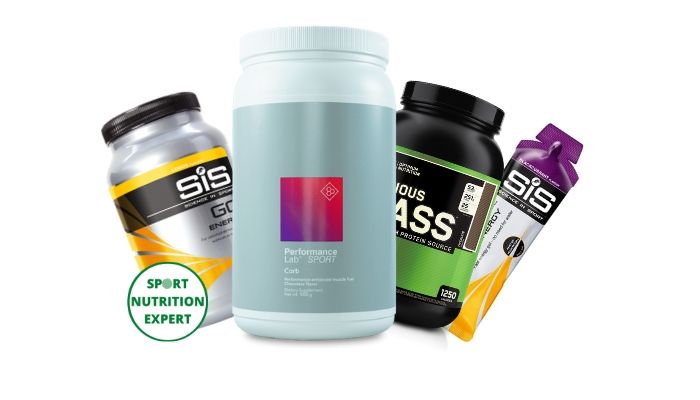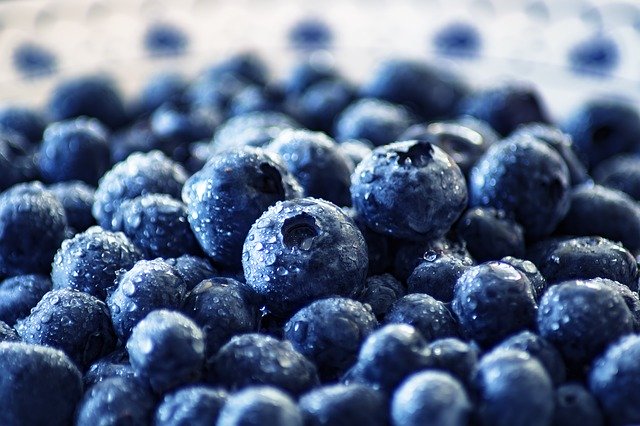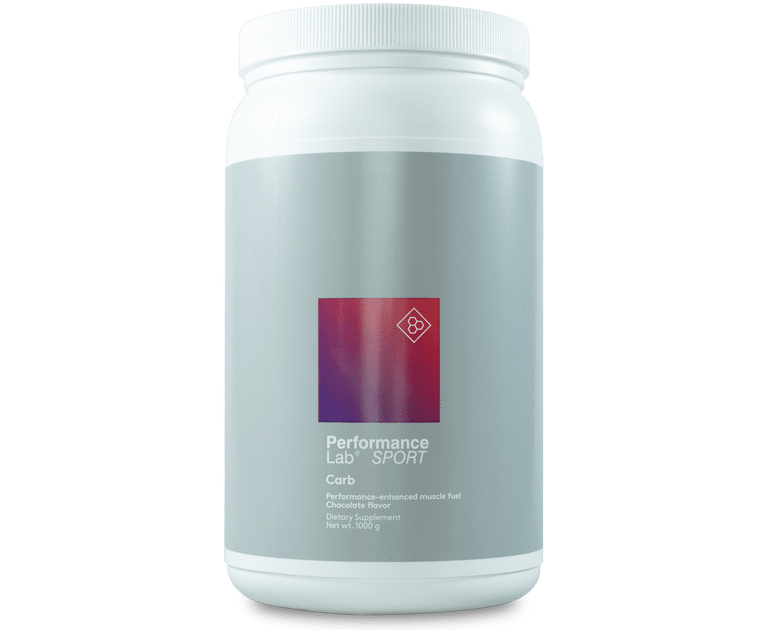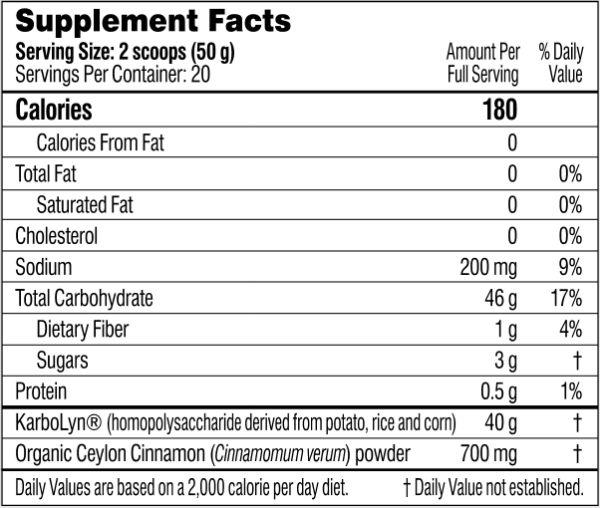With documentaries such as ‘Fittest on The Planet’, it proves that CrossFit athletes know how to push their limits, both physically and mentally.
Their training plans and their workouts are online for the world to see. But what we don’t see most often is their diet…
What we eat, and when, will have the most significant impact on exercise performance for CrossFit or otherwise. (I)
Carbs are the key factor in boosting intense muscular activity and endurance. Such as those associated with CrossFit.
This article will give you an overview of the benefits of carb supplements. The different types. And the best available for CrossFit in 2020.
Continue reading to learn more…
Table of Contents
Benefits of Carb Supplements For CrossFit

- Carbohydrates store as glycogen in the body (muscles and liver). They are released when needed during activity.
- When exercising at a higher intensity at 50-100% max heart rate. Our body primarily uses stored muscle and liver glycogen.
- After muscle and liver glycogen is depleted. The main way to fuel muscle activity is with blood sugars.
Therefore, given the intense activities, which are the foundation of CrossFit, we can see that carbs play a vital role in enhancing exercise performance.
So what does all of this information mean?
This means that carbohydrates should be your backbone. Your foundation of performance nutrition in CrossFit.
The best sources for immediate energy are carb supplements, fruits and some vegetables.
One research paper showed that it’s more common to be under fuelling on carbohydrates than most athletes think. This accidental ‘under-fueling’ has a significant impact on performance. (II)
List of Benefits from Carb Supplements:
- Faster absorption – faster than foods in most cases. Which makes carb supplements ideal for a quick burst in performance.
- Intelligent formulas – scientific supplements are now available which deliver just the right amount of energy needed for enhanced muscular strength.
- Balanced minerals – minerals are vital for exercise performance, they balance fluid levels whilst supporting energy production.
- Easy to use – carb supplements are easy to use, which means they can be taken right before, during or after a workout to help your body perform at its best.
Different Types of Carb Supplements in CrossFit?

Powdered Formulas
Powdered carb supplements come in all shapes and sizes. They offer flexibility as you can change the amounts depending on your specific goals.
For example, they can be carried with you when travelling, and you can also add them to protein sources such as brown rice protein.
Lastly, I personally preferrer powdered sources as they offer the cleanest carbohydrate available (as a supplement). Also, they are the most adaptable supplement available.
It’s also worth mentioning that other carb supplements (gels, bars, and ready-made drinks etc) are bad for the environment due to packaging waste.
Energy Bars
Energy bars are a fast and convenient form of high energy food.
Most often they are made using a mixture of dextrose and maltodextrin from artificial sources. Along with oats and occasionally simple sugars.
They may also contain nuts, vitamins and minerals, and whey protein. Vegan sources are becoming more available, however, these are often very expensive.
Gels
Gels are easy to use as they are quickly absorbed into the bloodstream. This allows for faster digestion, thus increasing blood sugar supply to the working muscles.
They are made using synthetic ingredients such as gelling agents (Gellan Gum), along with maltodextrin from maize (corn starch). These can be useful at times, however, they often lead to stomach discomfort and sickness in some cases.
Ideally, these are only used when taking part in endurance events with station changes lasting longer than 60 minutes.
They’re not designed, however, for loading or post-recovery, more so for intra-workout fuel in long-duration sports.
How The Body Uses Carbohydrates

The most common supply of glucose in supplements is from maltodextrin, dextrose, and maize starch. However, more advanced options are now available such as Karbolyn – an intelligent carb source (continue reading to learn more).
Once the body breaks down carbohydrates using digestive enzymes. The pancreases then release insulin, which transports glucose to cells in the body.
During exercise, the majority of glucose converted will be used by your working muscles.
We can load our muscles and liver using carbohydrate supplements which convert to glycogen.
But once this is used up, the body relies on blood sugars to fuel activity. This is where using the right carb supplement comes in handy. (III)
Different Categories of Carbohydrates
- Monosaccharide – Monosaccharides, also called a simple sugar, are the simplest form of sugar and the most basic units of carbohydrates.
- Polysaccharide – Polysaccharides are long chains of carbohydrate molecules, specifically polymeric carbohydrates composed of monosaccharide units bound together by glycosidic linkages – a.k.a. slightly complex carbohydrates.
- Homopolysaccharide – Homopolysaccharides are polysaccharides composed of a single type of sugar monomer. A monomer is a molecule that can be connected together to form a larger polymer chain – making it a more complex form of carbohydrate.
Ingredients Found in Carb Supplements

Dextrose
- Dextrose is made from corn and it holds the same chemical structure and response in the body as glucose and blood sugar.
Maltodextrin
- Maltodextrin is also known as a polysaccharide. It’s made from vegetables and it’s rapidly absorbed in the body the same as glucose and it’s the equivalent to dextrose.
Maize Starch
- This is the starch taken from corn which leaves a powder. It’s often used in cooking as a thickening agent. It’s also been used in some carb supplements due to the way it mirrors blood sugar upon digestion.
Raw Carbohydrate Materials
Glucose
- Glucose is a monosaccharide which is a simple sugar that’s converted from different carbohydrate sources such as bread, fruit, and rice to name a few.
Fructose
- Fructose is known as a ketonic monosaccharide. It comes from the sugars in fruits, and commercially it’s made from sugar cane, sugar beets, and maize (corn).
Galactose
- Galactose is a monosaccharide and its main source comes from dairy, being lactose. The lactose structure is made from a disaccharide formed of glucose and galactose.
Cellulose
- Cellulose is a polysaccharide which makes up the cell walls of plants and vegetable fibres.
Sucrose
- Sucrose is classed as a disaccharide where it’s made from two monosaccharides (glucose and fructose). It’s produced naturally in plants where it’s most commonly used to make table sugar.
Intelligent Carb Sources
Vitargo®

Vitargo® is a trademark supplement that’s made from barley starch. This makes it a glucose-based polymer solution (glucose being a monosaccharide).
It delivers fast-absorbing carbohydrates which increase performance compared to other ‘ordinary’ carbohydrate supplements.
Some clinical studies suggest that it provides quick ‘stomach emptying’ (the digestion and absorption of said product).
Moreover, it’s also able to provide faster glycogen recovery than other basic carb supplements.
Karbolyn®

Karbolyn® (a trademark supplement) is a scientifically made sports product known as a proprietary blend made using potato, rice, corn starch.
It’s also known as a homopolysaccharide which is a relatively complex carbohydrate, being made of glycosidic bonds.
These glycosidic bonds help to retain the fast-acting nature of the product, yet it’s able to sustain blood sugar levels for much longer than other supplements.
For example, Karbolyn® absorbs faster than sugar, dextrose and fructose, yet it’s able to sustain energy for up to 2+ hours – due to the slightly complex nature of the product.
Furthermore, it’s able to pull nutrients through the digestive system, which feeds the muscles. This shows to enhance performance and recovery considerably.
Lastly, it doesn’t cause bloating like other supplements on this list.
Vitargo® vs Karbolyn®
 While I think Vitargo® is a solid product as it’s been shown to work better than maltodextrin and sugars. But when comparing it to Karbolyn®, the two aren’t the same.
While I think Vitargo® is a solid product as it’s been shown to work better than maltodextrin and sugars. But when comparing it to Karbolyn®, the two aren’t the same.
Vitargo® contains only 1 ingredient (barley), while Karbolyn contains several (potato, rice, corn starch).
In other words, this makes Karbolyn® a complex carb, with the ability to absorb faster than sugar.
Studies show that complex carbs are better for fuelling intense workouts whilst extending muscular endurance. One paper highlights how complex carbs improved run times compared to the non-complex group. (IV)
This is because fast-acting carbs will give you a burst in energy, but they aren’t as beneficial as complex sources for extended endurance capabilities.
Comparison Breakdown:
![]() Karbolyn® gets to work faster than sugar, yet it’s able to sustain energy for 2 + hours as it’s a slightly complex carb.
Karbolyn® gets to work faster than sugar, yet it’s able to sustain energy for 2 + hours as it’s a slightly complex carb.
![]() Vitargo® has been shown to be absorbed faster than maltodextrin and sugar, but there are no studies suggesting that it can sustain energy comparable to Karbolyn® – as it’s not as complex.
Vitargo® has been shown to be absorbed faster than maltodextrin and sugar, but there are no studies suggesting that it can sustain energy comparable to Karbolyn® – as it’s not as complex.
Best Carb Supplement For CrossFit 2020?
The best carbohydrate supplement in 2020 for CrossFit is Performance Lab SPORT Carb!

Performance Lab Carb is the best carbohydrate supplement as it contains organic ingredients for flavour and essential minerals for enhanced performance.
For instance, inside this carb supplement, you’ll find Karbolyn®, organic cocoa and cinnamon, Himalayan salt, organic coconut, and other natural organic flavourings.
These ingredients not only make it the best tasting carb supplement available, but this also makes it the most effective sports supplement for increased energy, endurance and recovery!
How Does Performance Lab Carb work?
- High energy supply, faster than sugar: Gets to work faster than sugar and dextrose – making it the most readily available carb supplement currently available.
- Sustained energy, without the crash: It’s able to sustain energy levels without the crash. This is thanks to the ingenious ingredient KarboLyn®.
To clarify, Performance Lab SPORT Carb is a state of the art carbohydrate formula that works faster than sugar, yet it’s able to sustain energy for 2+ hours.
What’s Inside Performance Lab Carb?
Inside Performance Lab Carb, you’ll find ingredients to hydrate and fuel muscular activity thanks to the carefully balanced mineral content, such as Himalayan Salt and Organic Coconut Sugar.
To clarify, sodium and potassium are important in the transfer of nutrients around the body. Including oxygen and blood, thus improving your endurance capabilities.
This is significant as dehydration is a major factor in reduced performance. (V)
You’ll also find KarboLyn®, which is the main ingredient inside this ‘state of the art’ carb supplement. This ingredient pulls nutrients through your digestive system for enhanced muscular performance and recovery.
Therefore, when using Performance Lab Carb, you’re filling in the gaps. making sure your body has everything it needs to fuel your body for intense CrossFit workouts.
To summarise; the minerals inside Performance Lab Carb, combined with organic cocoa, cinnamon, and Karbolyn® is truly the best carbohydrate supplement out there.
Nutritional Facts
Other Benefits To Performance Lab Carb
- Quick absorption
- All-natural
- Mixes instantly
- Pharmaceutical grade
- Neutral tasting
- Spikes energy levels fast, sustains muscle energy levels longer
- Caffeine-free
Where To Buy?
To finish the article, you can buy Performance Lab Carb directly on their website.
This is better for customer service satisfaction as it prevents counterfeit products from being produced and sold on third party websites. www.PerformanceLab.com/Products/Carb
(I) Department of Health & Human Services. “Sporting Performance and Food.” Better Health Channel, Department of Health & Human Services, 31 Oct. 2012. (source)
(II) Kanter, Mitch. “High-Quality Carbohydrates and Physical Performance: Expert Panel Report.” Nutrition Today, Lippincott Williams & Wilkins, Jan. 2018. (source)
(III) Murray, Bob, and Christine Rosenbloom. “Fundamentals of Glycogen Metabolism for Coaches and Athletes.” Nutrition Reviews, Oxford University Press, 1 Apr. 2018. (source)
(IV) The Role of Carbohydrates in Exercise and Physical Performance. (source)
(V) Riebl, Shaun K, and Brenda M Davy. “The Hydration Equation: Update on Water Balance and Cognitive Performance.” ACSM's Health & Fitness Journal, U.S. National Library of Medicine, Nov. 2013. (source)


Leave a Reply